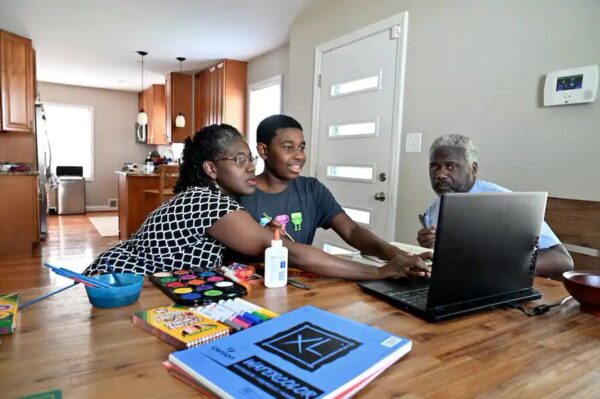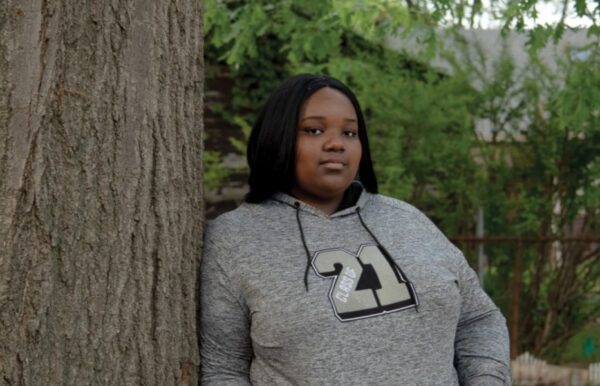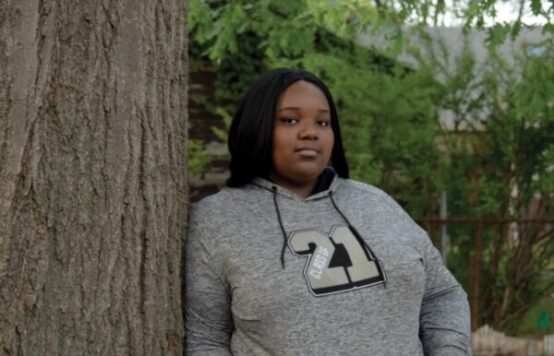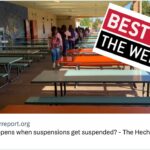Four key ways to depict Black homeschooling more accurately, with examples from the Washington Post, The Atlantic, the Hechinger Report, and (of course) the New Yorker.
By Khadijah Z. Ali-Coleman, Ed. D
Before the COVID-19 pandemic, Black families were much less likely to homeschool than the national average, making up 3% to 5% of homeschoolers even though about 16% of the nation’s students are Black.
Now the number of Black homeschoolers is at 16%, fully representing that group within the larger homeschool community. And because of this quintupling in the proportion of homeschoolers who are Black, Black homeschooling has emerged repeatedly in mainstream media.
In some ways, the change has been good, bringing this learning practice from the fringes of education-based conversations into the public’s central view. Some of the stories do a good job of interviewing families and describing the recent trend.
Where these stories tend to fall flat, however, is in describing the deeper, more nuanced aspects of Black homeschooling, which often rejects the traditional schooling structures that made it difficult for Black children to thrive. Nor do they provide an understanding that an escape from racism is woven into the very history of Black homeschooling, which makes it different from the larger body of homeschoolers.
Like white families, Black homeschoolers have varied reasons for choosing that path: More individualized instruction, more interesting lessons and field trips, religious convictions and so forth. Research indicates that Black homeschooled students who transition to higher education are more apt to persist, graduate and hold higher GPAs than those who were traditionally schooled.
But among many Black families is also a sense that their children need “deschooling” to help them rediscover their sense of success and love of learning that were lost in a traditional system that families often did not serve Black students well. An escape from racism has not been a reason why white families give up on public schools; for many Black homeschoolers, it is.
Because homeschooling is now being taken seriously as a schooling choice for a growing population, depth and nuance are more important than ever to convey to readers. Therefore, I offer the following suggestions to education journalists covering the rise in Black families choosing to homeschool:

Above: The Washington Post’s Home schooling exploded among Black, Asian and Latino students. But it wasn’t just the pandemic.
#1: Interview veteran homeschooling parents.
While the Washington Post reporters who penned Home schooling exploded among Black, Asian and Latino students. But it wasn’t just the pandemic. give acknowledgment to previous research on Black homeschooling, they do not cite it nor include in their article the perspectives of parents who were homeschooling before COVID-19.
Omitting the perspectives of veteran homeschoolers is a missed opportunity in providing deeper understanding on what differentiates Black homeschooling and how the pandemic shifted not only the perception of homeschooling for those new to the practice, but those who were homeschooling before COVID-19.
Also, if checking out the academic research on homeschooling is too time consuming or technical to cite, previous articles written on Black homeschooling before 2020 are recommended to review. Articles like this Atlantic article are helpful places to start, or coverage from local outlets like the Washington Informer and the Detroit NPR affiliate WDET. They feature examples of how interviewing veteran Black homeschoolers provides context and dimension to the reporting on the rise during COVID-19. Both provide a good model for other publications to follow. They include the perspectives of homeschoolers who were homeschooling before COVID-19 and report on the nuance within the Black homeschooling community.

Above: The Atlantic’s The Radical Self-Reliance of Black Homeschooling
#2: Report on the diversity of Black homeschooling
All too little of the coverage I’ve seen helps readers understand the many different forms that Black homeschooling can take. For instance, is the homeschooling parent replicating a traditional school model or is her approach to homeschooling different altogether?
Some parents contract with tutors to teach their children, while some join homeschool cooperatives (also known as co-ops) where they not only teach their own children but other homeschooling children as well. Some parents teach their children as the lead instructor, while others allow their children to be lead or co-facilitators in their learning journey through a self-directed approach to learning. Reporting on this area of diversity matters.
Yes, that diversity is found among homeschoolers in general, but for articles that are focusing on Black homeschooling, readers should learn about the many ways in which these families succeed while traditional schools often let Black students down.
In this Hechinger Report article published by PBS the reporter did a good job interviewing several parents, including one parent who shares that her twins have improved in math since being pulled out of school and beginning homeschooling. However, it would have been helpful to have included in the article what the mother’s homeschooling practice entailed and what led to her children’s academic improvement.

Above: The Hechinger Report’s As schools reopen, will Black and Asian families return?
#3: Resist the urge to attach Black homeschooling to Critical Race Theory (CRT) or any hot-button issue
Critical Race Theory has been a popular topic for months now and many news outlets have tried to connect to any and everything having to do with education. Yet, incorporating CRT curriculum in public school is not really something that happens, so it is often a red herring when it is incorporated into any educational articles on homeschooling. Put simply: Black parents aren’t homeschooling their kids in response to CRT or the protests against it.
CRT evolved as a legal theory and is often used as a theoretical framework for researchers and those writing academic and educational literature in law and higher education settings. This edWeek article on how laws in Texas banning CRT impact teachers and what they will teach in class illustrates how confusing the CRT conversation has been for everyone. So, when an article like this one in the National Review attempts to connect homeschooling and CRT, it shifts the topic toward politics and away from Black homeschooling.
And although many families reject traditional schools because of racism they’ve encountered, the reasons for Black homeschooling vary, just as they do for other homeschoolers.

Above: The New Yorker’s Rise of Black homeschooling
#4: Resist the urge to link Black homeschooling to a political agenda
Funding is always a hot-button issue when an article infers that funding is attached to an agenda. This New Yorker article focused on Black homeschooling while highlighting the ways that conservative groups are funding co-ops led by Black parents. While the article did a great job highlighting the activism of the parent featured and how she tried to make the public-school work for her daughter before choosing homeschooling, the writer quickly shifted focus.
The feature seemed to open as a story about the rise of Black homeschooling but shifted to becoming an expose on how conservative groups are investing in BIPOC-led homeschool co-ops and other type of parenting groups, unbeknownst to the public. Inferring that white conservative funding is the root of the rise in Black homeschooling is an inaccurate depiction of the movement as a whole.
In addition, it is disingenuous to mention that the funding has been given without giving more clarity around what the funding consists of and how it impacts the implementation of the homeschool collective that the person featured was in charge of. The last thing that many Black parents want to be connected to is a conservative agenda.
This article may have caused harm to the person featured by inferring she is taking money that is not aligned with the goal of many Black families choosing to homeschool. I have been offered funding opportunities for my homeschooling activities from conservative groups and turned them down specifically for this reason alone.

Above: The author, Khadijah Z. Ali-Coleman, Ed. D, whose book on Black homeschooling in the US is scheduled to come out later this year.
The topic of Black families choosing to homeschool will continue to be popular for education journalists, as it should be. As these stories continue, let’s ensure that the coverage is balanced, informed, and nuanced.
Most of all, if a writer is going to take on the topic of Black families who are homeschooling during this pandemic, it is my hope that Black homeschooling families are treated with care and their stories are not used to fasten on as many hot-button issues as possible into one article, but rather on the experiences of homeschoolers both new to the practice and veterans.
Additional resources:
- Black Family Homeschool Educators and Scholars YouTube Channel
- Research on Black homeschooling
- The Positive Impact of Homeschooling Black Children
ABOUT THE AUTHOR

Khadijah Z. Ali-Coleman, Ed. D
Khadijah Z. Ali-Coleman is an educator, homeschool practitioner, and education scholar who’s homeschooled off and on for 13 years. She’s worked as an educator for over 20 years and is co-editor of the forthcoming book Black homeschooling in the US: Practice, theory and popular culture . You can follow her on Twitter at @KhadijahOnline.













